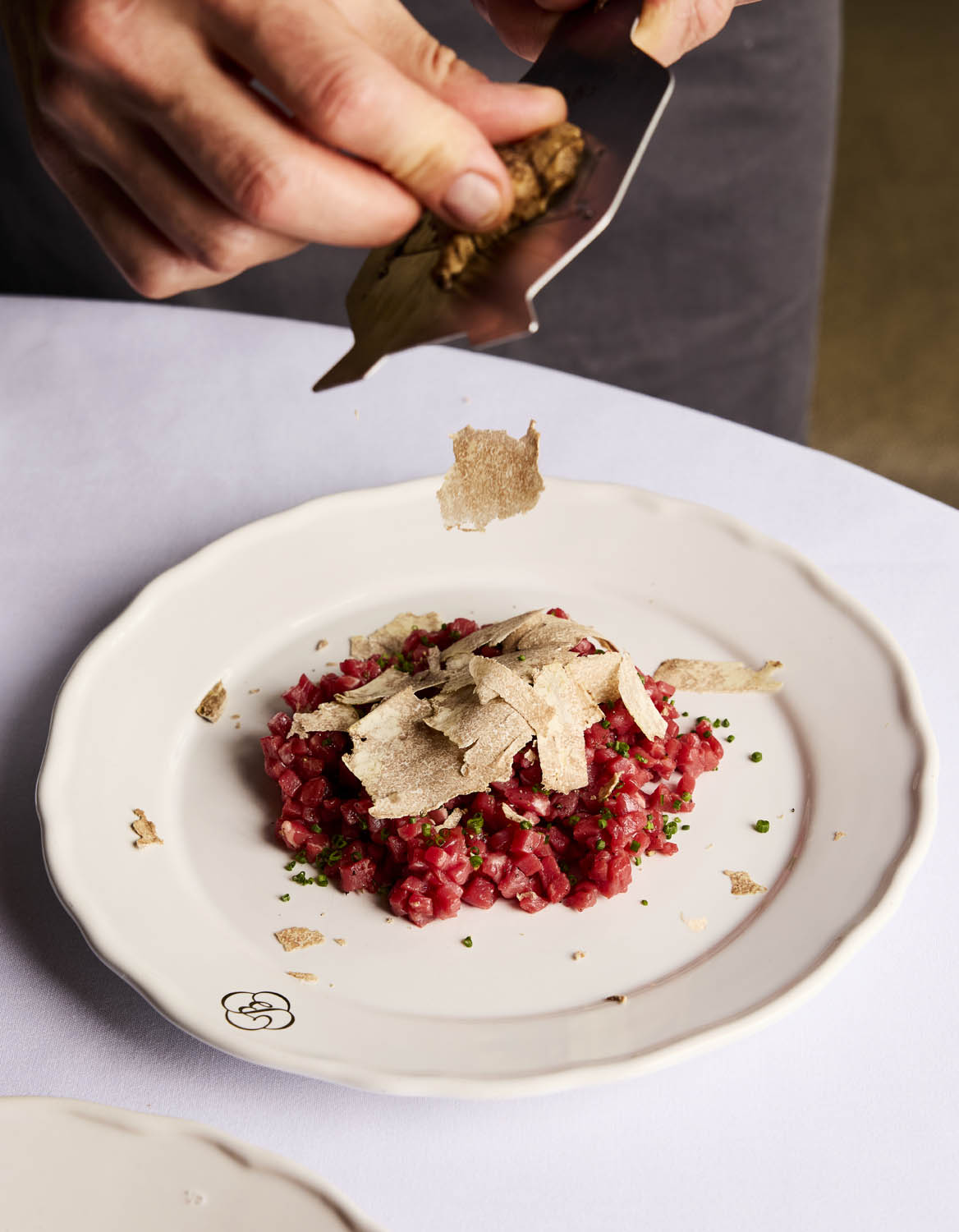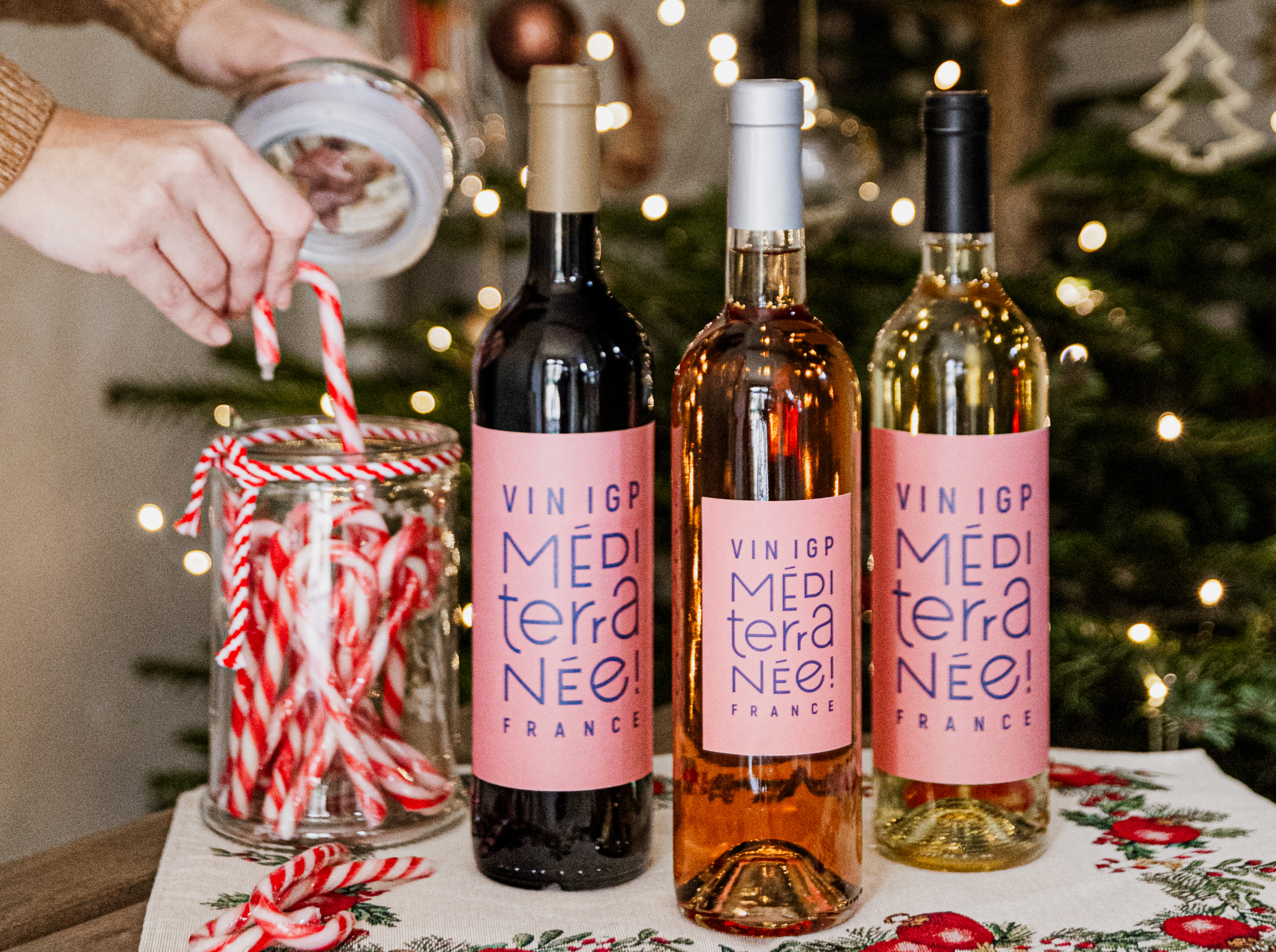Why wineries are teaming up with cruise lines
Wine brands are having to find new ways to reach audiences in a fragmented media landscape, including on cruise ships. Kathleen Willcox finds out more.
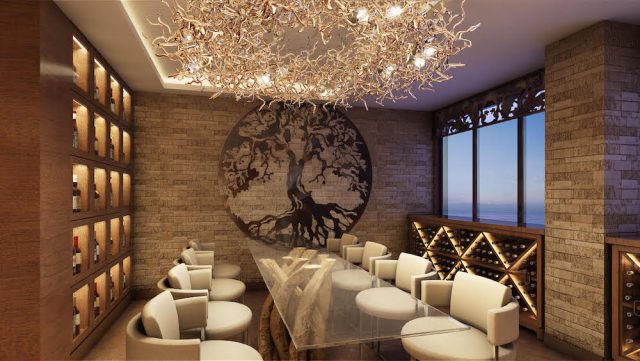
How do get people to buy what you’re selling? The question is as old as time (or, perhaps more to the point here, clocks).
Just a generation ago, brands looking to reach a lot of people at once could place an ad in a hit TV show or a glossy mag targeted at their desired demographic. Zip, presto, and the money would roll in.
Ah, those were innocent times—the concept of appointment television today is un-applicable in a wildly fractured media landscape filled with networks, streamers, social media channels, podcasts and more with cult, but rarely large, followings.
Today, finding a large captive audience undistracted by whatever’s happening on their phones is more challenging than ever.
Perhaps unsurprisingly, the return on investment these days on traditional television advertising is dismal—Anne Tuchman, an associate professor of marketing at Northwestern University’s Kellogg School of Management analysed the effectiveness of commercials on sales for 200+ packaged goods, including drinks, and found that companies would have to double their spending to boost sales by just a single percent.
Which is why, despite disgusted guffaws and shrieks of disdain from traditionalists, wine brands are increasingly pouring money into things like influencer marketing. One Ogilvy study reports that 40% of those engaging in influencer marketing have seen improved lead generation and sales outcomes from their work shilling on Instagram.
Brands are also finding a range of other creative ways to reach their desired audience, including, on cruise lines.
The global cruise industry is booming. Valued at US$7.4 billion in 2023, it is expected to reach US$22.6 billion by 2033, for a compound annual growth rate of 11.8 percent, according to a report from Spherical Insights and Consulting.
And it’s not just anyone cruising: it’s the people winemakers want as customers—those who are curious, thirsty for adventure, with cash to spare.
How and Why it Works
“Several of the wineries that I work with [at the California-based Zinfandel Advocates & Producers] have done work on cruises over the years,” ZAP’s executive director, Rebecca Robinson says.
“Because there are so many different cruise lines, and so many cruises that appeal to different demographics and budgets, there is an opportunity to find one with a lot of potential for a brand. For optimal success, I think it’s important for them to think about the match.”
How wines and cruise lines opt to work together does vary, but only up to a point.
Typically, a cruise line— AmaWaterways River Cruises , Silversea, Avalon Waterways, Viking River Cruises and Oceania Cruises are some of the most active wine cruise lines—will approach the winemaker.
“The corporate office arranges all of the details of getting the wine shipped, and they discuss what is expected from the winemaker on board,” says Zhivko Georgiev, a hotel manager AmaWaterways who has overseen dozens of wine cruises during his 15-year tenure with the company. “Typically, the winemaker does one tasting seminar that discusses the wine and history of the region we’re cruising in, and another that covers their own wines. They also do a wine pairing dinner.”
The winemaker is expected to prepare for the topics, and once on board, they meet with the culinary team to taste through the proposed menu for their pairing dinner.
“It is really pretty straightforward,” Georgiev says. “But everyone seems to benefit because the winemaker, even if they’re small, will make a memorable impression on the guests. The guests love it because they get to try a lot of new wines and learn about the history of the region in a new way.”
It benefits the cruise line too, of course.
“Delving into regional wine specialties has become an important part of how travelers experience a destination,” says Kristin Karst, co-founder and executive vice president at AmaWaterways. “A heightened wine focus enables our guests to develop a deeper and more nuanced appreciation for a country, it’s history, culture and people.”
Bringing in a host who can offer their personal expertise and perspective enhances their experience, she explains. Having a vintner bring in their wine is an added bonus.
“Our primary focus is showcasing the local wines of the regions we visit, but we love featuring a North American wine host who brings their own wines on board,” Karst says.
“This adds a layer of excitement and diversity to our wine program, allowing guests to explore different styles and techniques, expanding their palate and understanding of different winemaking techniques globally.”
Reaching a Completely New Audience
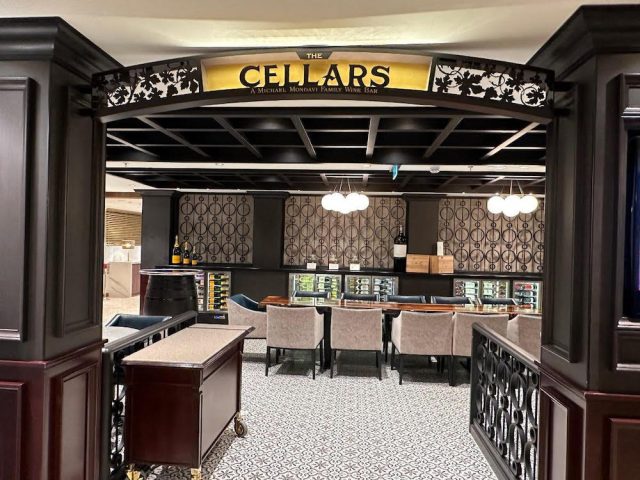
Traditional marketing is completely out of reach for most small wineries, so having the opportunity to find a new community of fans on a cruise ship is invaluable, says Paul Toussaint, winemaker and co-founder at Toussaint Cellars Winery in Santa Barbara.
“We still both work two other full-time jobs,” Toussaint says, referring to himself and his wife Gina Toussaint, who handles the business side of their winery. “We sell everything direct-to-consumer so getting in the market is essential for us. When Robert [Schmidt, director of sales and business development at AmaWaterways] asked us if we wanted to host a cruise, it was a no-brainer.”
There were just north of 100 cruisers, and between the seminars, the wine-pairing dinner and the bottle of wine he gifted each room, Toussaint Cellars surely earned a permanent place in the memories of the people on the journey.
Partner Content
Not to mention the added viral marketing bonuses from bottle shot photos posted by cruisers social media, plus the new batch of customers and potential collectors.
Cementing Long-Term Relationships
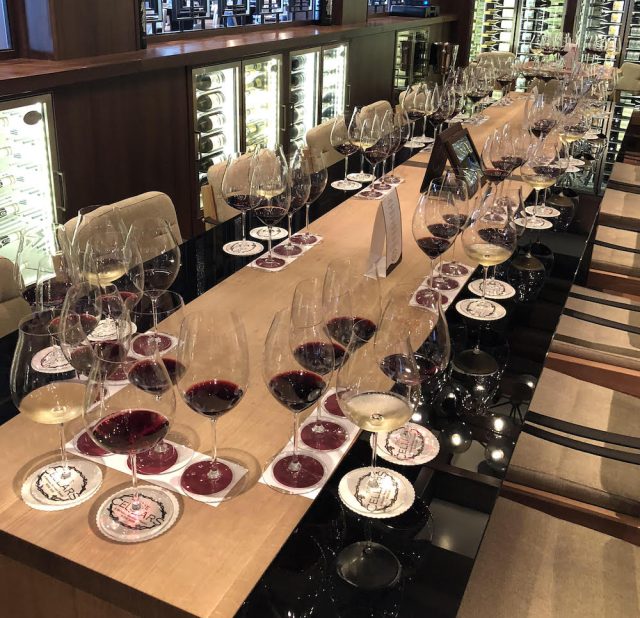
Other wineries use cruising less as a new marketing opportunity than as a way to cement relationships with long-term supporters, and the cruise lines themselves.
Remi Cohen, CEO of Napa’s Domaine Carneros, says that they do one cruise a year now, usually with Silversea. They invite club members to be a part of a larger cruise offering, with around 40 participants a year, some of whom who have cruised multiple times with the winery.
“We like to provide an opportunity for our club members to engage with the winery in a unique and special setting,” Cohen says. “We select different destinations every year to keep our members engaged.”
The enthusiastic participation of a winery’s club members sometimes surprised even experience cruise pros.
“I will never forget the name Chappellet,” Georgiev says, referring to the popular St. Helena, CA winery. “They brought several of their wine club members, and those wine club members really loved their wines. They prepared 150 bottles for a dinner with 100 guests.
I said, ‘very respectfully, but there is no way that 100 people will each drink a bottle and a half at dinner.’ Our host said, ‘just wait.’”
Georgiev admits that not only did they go through the 150, they had to open additional bottles.
“We went through so much wine, we had to have more sent over from America halfway through the cruise,” he says. “No. I will never forget the name Chappellet.”
Cohen says that their long-term relationship with Silversea has, in addition to reinforcing relationships with their biggest supporters, presented unexpected opportunities to showcase their brand.
“Silversea has purchased our wines to feature on their cruises outside of these special cruise events,” she says.
Nick Palumbo, owner and winemaker at Palumbo Family Vineyards and Winery in Temecula, CA, agrees that while he initially joined AmaWaterways as a host to bolster relationships with Palumbo’s loyal wine club members, there have been several unexpected benefits.
“We have found that the demographic is more diverse than you might expect,” Palumbo says. “There were people on board ranging from families with teens all the way through the more typical retired couples. These trips have also proven to be great ‘friend-raisers.’ They make our wine club members feel a part of something bigger. And we also picked up a few members along the way, people who weren’t familiar with our winery at all.”
Featured Winery Onboard
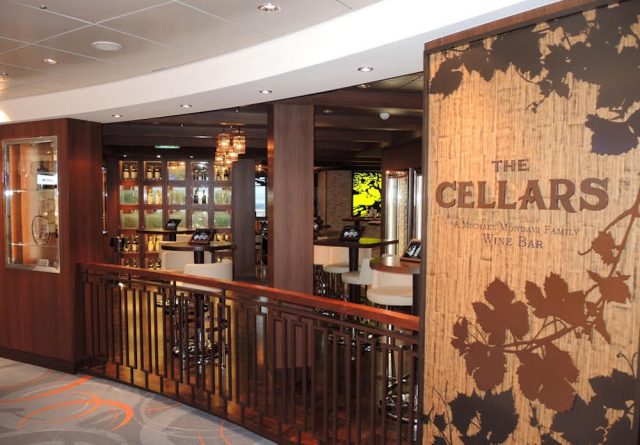
Brands don’t even necessarily need to host a specific cruise to reap major benefits. As Michael Mondavi, founder of Michael Mondavi Family Estate and co-founder of Folio Fine Wine Partners explains, he founded The Cellars by the Michael Mondavi Family on the Norwegian Escape in 2015 to leverage “exposure to a diverse demographic of guests from around the world.”
“We look at cruise lines as a great marketing tool for our brands, and not just cases sold,” Mondavi says.
The Cellars by the Michael Mondavi Family is featured on five Norwegian ships. They began by featuring family wines, including M by Michael Mondavi, Animo and Oberon, and supplemented the sips with formal tastings and learning experiences.
“It then evolved into winemaker cruises where [his children] Dina [Mondavi], Rob [Mondavi] or myself would sail onboard for a week to meet guests and lead wine tastings and dinner onboard,” Mondavi says.
He says that Slainte Wines, a cruise line brokerage has expanded the focus further, and gotten them key placements on several cruise lines, including Royal Caribbean, Princess, Holland America, MSC, Disney and Windstar.
“We’ve found that cruise lines are a great way to gain exposure,” Mondavi says. “Guests are on vacation, relaxing and they’re open to trying food and beverages that they may not have tried before. Many go home and seek out these wines to enjoy and share with family and friends.”
Once bitten by the wine cruise bug, hosts tend to become believers.
“Many of our hosts choose to partner with us repeatedly, often hosting a cruise every year,” Karst says. “They are able to deepen relationships with their wine club members, increase exposure of their products, boost sales when they return and grow their wine club memberships.”
Toussaint certainly feels that way.
“I’ve already signed up to host another cruise in Burgundy,” Toussaint says.
Related news
For the ninth day of Christmas…
The db wine crime files 2025: part 2
'Rare buying opportunities' as fine wine prices hit a five-year floor


